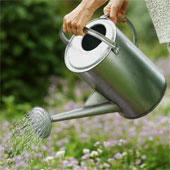Classifications
Posted by bhans in classifications, omniture, sitecatalyst, web analytics
After spending some time with the best Omniture University trainer Nathan Walker at Summit this year in Salt Lake City, I discovered the power of classification tables. After implementing the best overkill of pagename taxonomy I had tons of data and variables captured but no way to sort it or filter it efficiently.
As a SiteCatalyst user at my previous job, I always found it frustrating to find simple things SiteCatalyst.
Omniture trains you on a fake website called electronicsplus.com. I was so excited to see all of things that electronicsplus.com could do with their data. If you tried hard enough you could figure out what they had for breakfast. I came home excited and gung ho to jump into SiteCatalyst and get to work. I found that what we had in place and what I saw on electronicsplus.com were two entirely different worlds. I spoke at length with the implementation engineer who kindly took me aside and showed me the way things really are and that we would never be like electronicsplus because of a grocery list of roadblocks. I believe that anything was possible on that website, but most of it wasn’t feasible. The SiteCatalyst engineer of that site is now one of my most trusted colleagues and a great mentor. He showed me what SiteCatalyst could do well ...and what it couldn't. We soon came up with excellent ways to track campaigns using query string and pulled the power out of the reports.
Stepping into my new job I was presented with a clean slate and the opportunity to fix many of my frustrations as a SiteCatalyst user. In trying to do so I also found a new respect for the implementation side. Implementing SiteCatalyst is hard. SiteCatalyst is great when it works, and when you have what you need.
I have had liberating success with the page names that we customized for this company. I also capture the pagename as an s.prop and then classify those further.
Classification tables are awesome because they can be defined in any way that best suits your needs. All of these classifications are retroactive which is huge. This also means that if you flub up or completely change your mind... you can start over and nobody dies.
Classification tables are lame because depending on what variables you classify they can become a time consuming monster.
Here are my classification tables:
Market (country)
I love this classification table. It is so cute and cuddly and only has about 50 different keys to be classified. I can easily classify these 50 Markets (countries) into: Region, Sub-Region, and Market Group. The best part is if the ways that these geographic regions are grouped, the classification tables are agile enough to easily keep up. Did I mention that all of these changes are also retroactive? Huge plus if you ask me.
Products
The Products classification and I have had our ups and downs. We originally started capturing just the SKU made up of eight digits with no real meaning. I found my reports telling me that 86753090 was the most popular product for the month of December. To which I replied "yeah so what does that mean?" and then go look it up. My answer to this was to return to the developers and ask if they could do a lookup of the SKU and append the English name to the SKU such as: 86753090/product name here. This eventually came back to bite me because I soon found out that anyone could access the DB where these names lived and change the name. Now this new name "8675309/new product counted completely separately from the original. There is no technological solution to bad human habits. We soon returned to SKUs only. The damage was done. In some cases I had 4 different variables all for the same product counting 4 different times. After discovering classification tables I was able to repair the carnage and classify all 4 of these as one product again. A product name that only my group has control over. A name that we can change (retroactively) anytime we want to.
Page Name
Oh I love my pagename classification. No, I hate it. Ok, I love it. Well I really hate it. The true story is, I love to use them, and I hate to maintain them. I started with a table of nearly 80K keys which I classified. By the end of the next month I had captured another 51K and just this month I classified 21K. I can only hope that this trend continues downward.
So there sits my latest issue.
Does anyone else have these issues?
How many classification tables do you manage?

